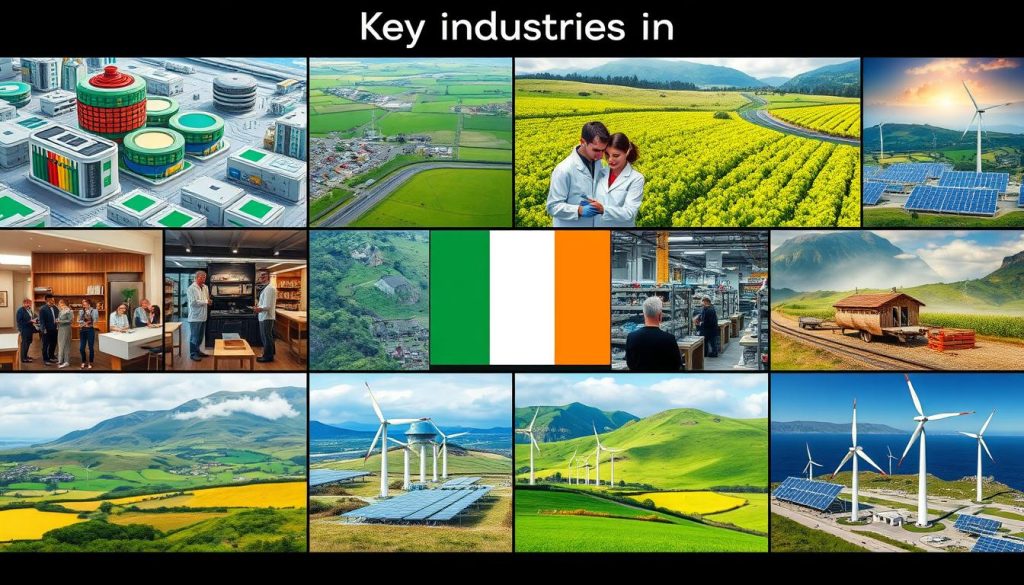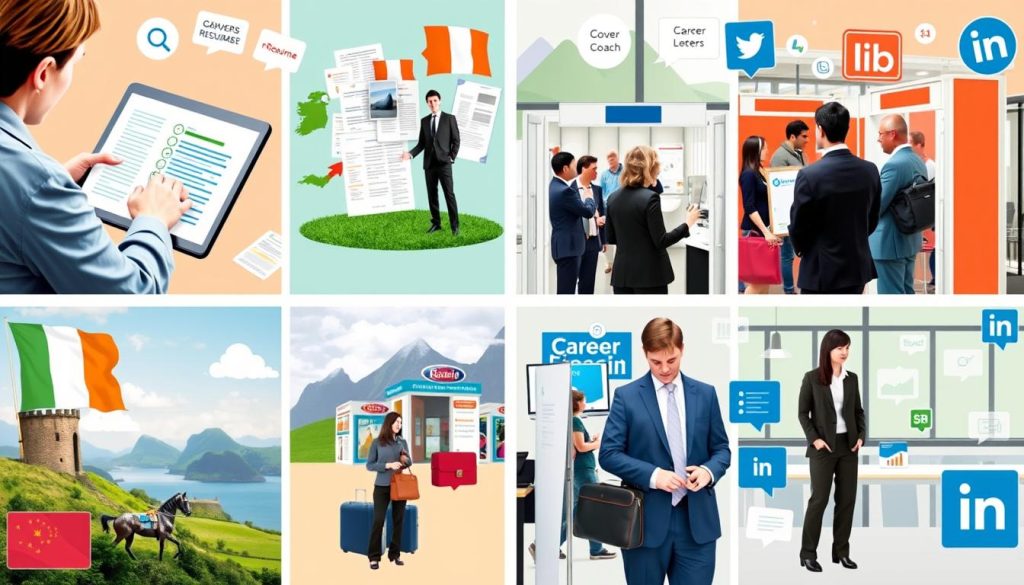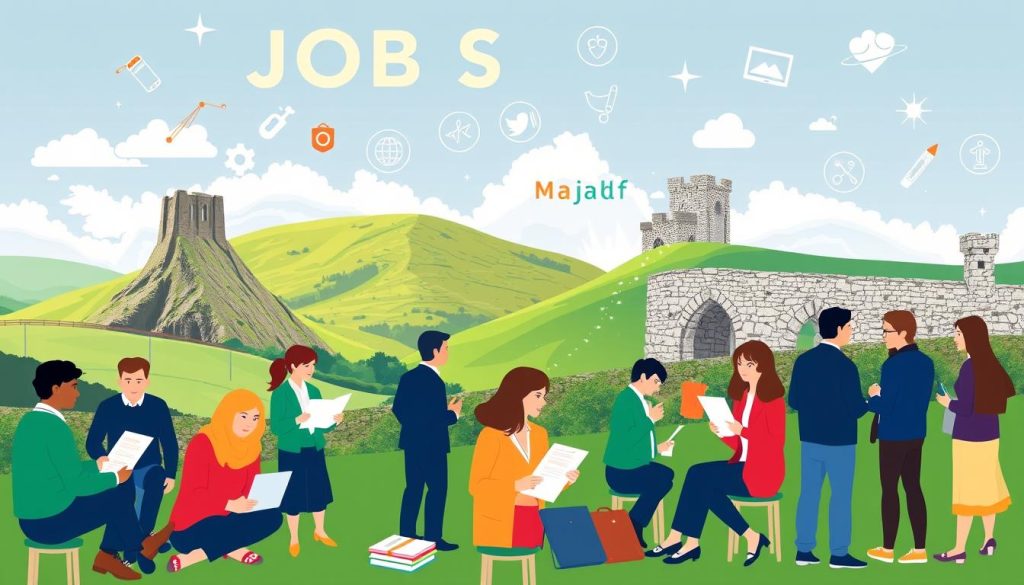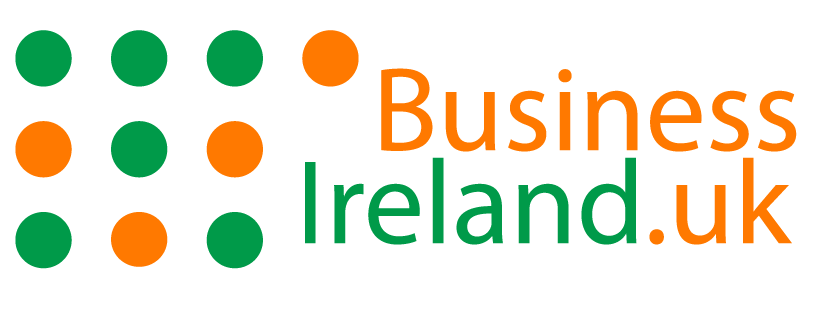The job markets in Ireland have changed a lot in recent years. This change is thanks to Ireland’s growing economy. With globalisation and new technology, new jobs are popping up in different areas. It’s important for job seekers to know about these changes to find work.
This guide will talk about the main industries and the changing job trends in Ireland. It will help you understand the job market better.
Key Takeaways
- The Irish economy has evolved extensively, creating diverse employment opportunities.
- Globalisation and technology significantly influence the job markets in Ireland.
- Understanding key industries is essential for job seekers exploring their options.
- Employment trends are constantly changing, necessitating flexibility in job searches.
- Being aware of economic fluctuations can aid in identifying promising job markets.
Overview of Ireland’s Economy
Ireland’s economy has shown great strength in recent years, recovering well from the financial crisis. The country’s GDP growth shows its ability to adjust to global market changes. This has made Ireland attractive for foreign investment due to its good corporate tax policies.
The economy now shows both good and bad signs. Job numbers have been getting better, showing a strong job market. However, the rising inflation rate is a concern, impacting how much people can spend and the economy’s stability. Finding a balance will be key for continued growth.
| Performance Indicator | 2023 Data | 2022 Data |
|---|---|---|
| GDP Growth Rate | 4.5% | 6.0% |
| Unemployment Rate | 5.1% | 5.4% |
| Inflation Rate | 6.3% | 5.0% |
Ireland’s economy looks set for more growth, but challenges must be overcome. Policymakers need to tackle the inflation rate and create a supportive environment for growth.
The Job Markets in Ireland
The job market in Ireland is changing and has many different areas. The unemployment rate is low, showing a stable job scene. Different areas are good at certain jobs, with cities usually having more jobs than rural areas.
New areas like technology and healthcare are growing fast, making more competition for jobs. People with good education have an edge in getting jobs. This is because employers want special skills for their needs. The demand for these skills is expected to grow, making these fields key to Ireland’s economy.
There’s a lot of variety in the jobs available. Manufacturing and trade are doing well, but services are also on the rise. Global changes and new technology are changing what jobs need and how they are done. This affects the future of work in Ireland.
Key Industries Driving Employment

Ireland is home to a variety of key industries that boost employment across different sectors. The technology sector is a big player, thanks to big companies and new startups. These add to Ireland’s economic growth. The finance and insurance sectors also offer many job chances for people with different skills.
Technology Sector Growth
The tech sector in Ireland has grown a lot, drawing in big names like Google, Facebook, and Apple. This growth creates a lively place for new ideas and jobs. Dublin is now a key tech spot, offering lots of work in software, data analysis, and cybersecurity.
More international talent and investment keep making Ireland a top spot for tech jobs.
Finance and Insurance Opportunities
Finance jobs in Ireland are plentiful, especially in Dublin’s International Financial Services Centre (IFSC). This area is a hub for financial services, drawing in banks, investment firms, and insurance companies. There’s a big need for skilled finance workers, making it vital to get the right qualifications and experience.
Current Employment Trends in Ireland
Employment trends in Ireland are changing fast. Remote work is becoming more popular, changing how companies work and what job seekers want. There’s also a big difference between contract jobs and permanent roles, offering various chances and things to think about.
Remote Work Arrangements
The COVID-19 pandemic made remote work more common in Ireland. Now, many companies keep offering flexible work models. This lets workers control their time better, making them happier at work.
This shift has created more jobs in fields like tech and customer service. It helps companies find talented people from anywhere, not just locally.
Contract vs Permanent Positions
Choosing between contract and permanent jobs is a big decision. Contract jobs are flexible and let you work on different projects. But, they don’t offer the same job security as permanent roles, which have benefits like health insurance and paid holidays.
People need to think about what they want from their career. Do they want job security or the chance to try new things? Each choice should match their career goals.
In-Demand Skills in the Irish Job Market
The Irish job market is changing fast, focusing on certain skills that employers really want. Both technical and soft skills are key to getting a job. They help job seekers stand out and improve their chances of getting hired.
Technical Skills on the Rise
Technical skills are becoming more important as companies use more technology. Employers look for people who know about:
- Data analysis: Being good at understanding and making sense of complex data is vital.
- Software development: Knowing different programming languages and frameworks is a must.
- Cybersecurity: Keeping digital information safe is very important.
These skills are in high demand in fields like tech, finance, and engineering. They help companies stay ahead in a fast-moving world.
Soft Skills Valued by Employers
Soft skills are also very important in the workplace. Employers want people who are good at:
- Communication: Being able to share ideas clearly helps teams work better together.
- Adaptability: Being able to quickly adjust to new situations is key.
- Problem-solving: Finding and fixing problems quickly makes a team more productive.
Having both technical and soft skills makes a job seeker more attractive to employers. It shows they can handle different parts of a job well.
| Skill Type | Examples | Importance |
|---|---|---|
| Technical Skills | Data analysis, Software development, Cybersecurity | Essential for technology-driven roles |
| Soft Skills | Communication, Adaptability, Problem-solving | Enhances teamwork and business adaptability |
Job Search Strategies for Success

Finding a job in Ireland needs a good plan. Using smart job search strategies can really help. There are many challenges, but with the right tools and methods, you can boost your chances of getting a job.
Utilising Online Job Portals
Online job portals are a key tool for job seekers in Ireland. Sites like Jobs.ie, Indeed, and LinkedIn have lots of job listings across different sectors. You can filter jobs by location, salary, and type of work, making it easier to find what you’re looking for. It’s also important to keep your profile up to date and interact with employers to get noticed.
Networking Opportunities in Ireland
Networking can lead to jobs that aren’t advertised. Going to industry events, seminars, and online forums is a great way to make connections. Having a strong professional network gives you insights into job openings and trends. Using LinkedIn to connect with professionals can also open doors to hidden opportunities.
Understanding the Recruitment Process
The recruitment process in Ireland is changing, with companies using new ways to find and keep the best people. From the first job application to the final decision, each step is key to matching the right people with jobs. Employers use interview techniques and tests to find the best candidates.
Many companies now use hiring trends like behavioural interviews and tests that check problem-solving skills. They also use technology, like AI, to make finding candidates faster and more efficient.
Candidates today want a clear and quick hiring process. They look for good communication and feedback. Companies that match their needs are more likely to find the right people.
| Step in Recruitment Process | Description | Key Techniques |
|---|---|---|
| Job Posting | Creating clear and attractive job descriptions to reach the right audience. | Job boards, company websites, social media |
| Application Screening | Initial review of resumes and applications to shortlist candidates. | AI tools, keyword scanning |
| Interviews | Conducting discussions to evaluate candidates’ skills and fit. | Behavioural interviews, competency-based assessments |
| Final Selection | Choosing the best candidate based on interviews and assessments. | Consensus meetings, reference checks |
The recruitment process in Ireland is more than just hiring. It’s about giving a good experience that shows what the company values. Companies that adapt to these changes get a more engaged team and better productivity.
Impact of Brexit on the Irish Job Market
The Brexit effect on Ireland’s job market has been huge, changing jobs across many sectors. Ireland is now in a special spot as the UK deals with its new EU ties. This change has made companies look at their staff and how they hire people differently.
Businesses are adjusting to new trade rules and work laws. This has made them think about how they work, sometimes moving parts of their business to Ireland. The IDA has seen more companies interested in using Ireland for their European work, showing how UK-Ireland ties are changing.
Also, people looking for jobs are now eyeing Ireland more. New immigration rules mean employers must change how they hire. They’re now aiming to hire skilled people, especially in areas hit hard by Brexit.
Irish companies are getting ready for these changes, seeing new chances for growth. The post-Brexit world offers a chance for businesses to grow and expand. By using Ireland’s strengths, companies can do well in this new situation.
Work Visa and Immigration Regulations
For those wanting to work in Ireland, it’s key to know about work visas and immigration rules. Ireland has different visas for various jobs and skills. It’s a complex process, but knowing what to do can really help.
Types of Work Visas Available
There are many work visas for different jobs. Here are the main ones:
- Critical Skills Employment Permit: For highly skilled people needed in fields like tech and healthcare.
- General Employment Permit: For jobs that aren’t critical but still need to meet certain criteria.
- Intra-Company Transfer Permit: For moving within a company to its Irish office.
- Working Holiday Authorisation: For young people wanting to live and work in Ireland for a bit.
Application Process and Requirements
Applying for a visa involves several steps and lots of documents. You’ll need:
- To fill out the right visa form.
- A job offer from an Irish employer.
- To show you earn enough money as per the rules.
- Your qualifications and work history documents.
- To meet health and character standards.
After Brexit, visa rules have changed. It’s important to keep up with these changes. Always check official sources for the latest on applying for a visa.
| Visa Type | Eligibility Criteria | Max Duration |
|---|---|---|
| Critical Skills Employment Permit | Highly skilled job offer in demand | Up to 2 years (renewable) |
| General Employment Permit | Job offer in occupation not on critical skills list | Up to 2 years (renewable) |
| Intra-Company Transfer Permit | Transfer within multinational company | Up to 5 years |
| Working Holiday Authorisation | Age 18-30, eligible countries only | Up to 1 year |
Top Cities for Job Seekers in Ireland
In Ireland, Dublin and Cork are the top cities for jobs. Each city has its own benefits, fitting different career goals and lifestyles.
Dublin: The Tech Hub
Dublin is a top spot for tech jobs, drawing many big companies. With Google and Facebook here, it offers lots of work in tech, finance, and more. The city’s lively culture and many activities make it great for those who want a good job and a fun life.
Cork: Growing Business Landscape
Cork is becoming more popular for its job chances, especially in pharma and renewable energy. It’s perfect for those wanting a career boost and a happy life. It’s cheaper to live in than Dublin but still has a supportive community, making it a great choice for job hunters.
Salary Expectations and Cost of Living
It’s key for job seekers to know what they can earn in Ireland. Different jobs offer different salaries, which affects how much you can spend. This info helps people see how their income matches up with living costs in big cities.
Average Salary Comparisons by Sector
Salaries vary across sectors in Ireland, shaping what people expect to earn. The table below shows average salaries for different jobs. It helps job seekers understand their potential pay.
| Sector | Average Salary (€) |
|---|---|
| Technology | 75,000 |
| Finance | 70,000 |
| Healthcare | 62,000 |
| Education | 55,000 |
| Retail | 30,000 |
Cost of Living in Major Cities
Living costs can change a lot between cities like Dublin and Cork. Things like rent, transport, and everyday expenses differ. This affects how much money people take home. Here’s a look at typical monthly costs in these cities.
| City | Rent (€) | Transport (€) | Groceries (€) |
|---|---|---|---|
| Dublin | 1,900 | 120 | 400 |
| Cork | 1,400 | 100 | 350 |
This summary shows how salaries and living costs are linked. It gives useful info for those thinking about jobs in Ireland.
Resources for Job Seekers in Ireland

For those looking for work, there are many resources to help. These include government support, online tools, and groups for job seekers in Ireland.
The National Employment Service is key in guiding job seekers. They offer workshops on interviews and CV writing. These help candidates stand out to employers.
Online sites like Jobs.ie and IrishJobs.ie are also great for finding jobs. They have lots of job listings, alerts, and advice on career development.
Career counselling is vital for job seekers. Non-profits offer one-on-one advice. They help people find jobs that match their skills and dreams.
There are also many training options for job seekers. Courses and adult education help improve skills and make people more employable.
Using these resources well can really help job seekers find work. It prepares them to do well in Ireland’s competitive job market.
Future Outlook for Employment in Ireland
The job market in Ireland looks set to grow, thanks to changes in the economy and new industry needs. The Future Jobs Ireland report points to growth in green tech and digital health. These areas match global goals for sustainability and offer lots of new job chances and innovation in Ireland.
Remote working is becoming a big part of the future of jobs. It gives workers more flexibility and lets employers find talent from a wider area. The Economic Forecast 2023 says that companies that use a mix of remote and office work will do well. They meet the needs of workers who want a good work-life balance and career growth.
Looking ahead, there will be a big push for tech skills and digital knowledge. The Workforce Development Strategy says schools and training places need to update their courses. This will help people get ready for the new job needs. By keeping up with these changes, people can get ready for new job chances as they come along.







